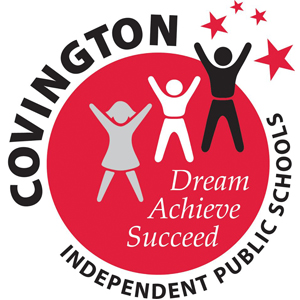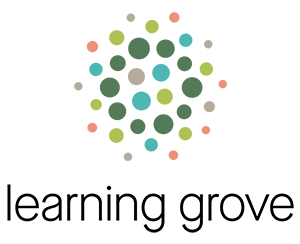As the COVID-19 pandemic continues, members of the Kentucky Department of Education’s Education Continuation Task Force met virtually Monday to discuss a guidance document about reopening schools for the 2020-21 school year.
The document leads school leaders through a variety of questions to consider about:
• How to provide for the health and safety of everybody in their buildings;
• How they will maintain quality teaching and learning:
• How they will support exceptional learners, including gifted and talented students and students in need of special education services; and
• How they will continue school and district operations.
Many of the decisions on how to move forward in this challenging time will be decided by local boards of education and school-based decision-making councils.
“This will be the first of several versions of this document,” said Interim Education Commissioner Kevin C. Brown. “We wanted to go ahead and get information into the hands of school district leaders so they can begin making plans for next year.“I have heard from the field that the guidance is too prescriptive and I have heard from the field that the guidance is not prescriptive enough,” he said. “That may mean that we’re about in the right place.”
The task force – which was convened by KDE to work together on issues related to education that arise during the COVID-19 pandemic – brought up the potential issue of how districts and schools will handle the need personal protective equipment (PPE) come the fall.
“What’s important … is to identify the different types of PPE that as a school district you will need. Everything from masks to gloves to protective equipment that your cafeteria workers may need to use,” said Kay Kennedy, a project manager in KDE’s Office of Finance and Operations. “Then the procurement of those can be done, hopefully, in a way that will allow us to take advantage of bulk pricing. Either through the co-ops or state price contracts.”
Much is still unknown about how the COVID-19 pandemic will unfold during the summer and into the fall. At the recommendation of Gov. Andy Beshear, KDE is encouraging schools to prepare for three contingencies for the start of the school year: an early opening, a traditional opening and a late opening.
One of the possibilities found within the guidance document is scheduled rotations. Under a scheduled rotation model, the school would assign students to groups that would attend school on alternating patterns, such as A-B days, AM/PM patterns or alternating weeks. This method relies on several flexible variables, such as student grouping, staff grouping, days of the week or the time of day.
This option may be helpful to schools with limited mobile technology. Mary Ruble, executive director of the Kentucky Education Association said districts may want to think about identifying students without internet access and prioritize bringing them onsite.
“Prioritizing those students probably won’t violate social distancing and classroom capacity requirements,” she said.
Designing High-Quality Learning Experiences
David Johnson, executive director of Southeast/South-Central Education Cooperative, raised concerns with the number of students that have limited to no access to the internet or internet-enabled devices to complete digital work during non-traditional instruction (NTI).
 To provide equitable access and lighten the work on teachers, David Cook, KDE’s director of innovation and coordinator of the NTI Program, stressed the importance of creating instruction that could be utilized digitally or through paper-based instruction.
To provide equitable access and lighten the work on teachers, David Cook, KDE’s director of innovation and coordinator of the NTI Program, stressed the importance of creating instruction that could be utilized digitally or through paper-based instruction.
“We have kids who are homeless, we have kids who are transient and we’re going to need an effective way to get them materials,” said Cook. “If you design (instruction) digitally, it’s a whole lot easier to transition it to something that is on a piece of paper than the other way around.”
According to Cook, the transition to digital learning plans has been difficult for Kentucky’s teachers and education leaders. After discussions at the department, Cook said KDE will focus on ways to assist and support teachers as they develop a digital learning design.
David Couch, chief information officer from KDE’s Office of Education Technology, reminded the task force that districts would be able to utilize funding from the Coronavirus Aid, Relief and Economic Security (CARES) Act to provide more equitable opportunities like internet access for students. But, Couch said, sometimes it’s an affordability issue rather than an accessibility issue.
Want more great content like this?
Become a sustaining member of NKyTribune with a tax-deductible donation today and help us continue to provide accurate, up-to-date local news and information you can depend on.
He said that districts could look at providing low-income families with mobile hotspots so that students would have a way to use the internet.
CTE Dual Credit and Industry Certification Completion
KDE has partnered with the Kentucky Community and Technical College System (KCTCS) to provide an opportunity for Kentucky’s seniors to complete their Career and Technical Education (CTE) dual credit and complete their industry certification.
KCTCS has offered its labs and instructors to Kentucky’s class of 2020 and will allow CTE students who still need to complete their dual credit classes the chance to do so. The goal is for these students to have their dual credit completed before June 30. Students will be provided with appropriate PPE.
Dual credit coordinators at each of the 16 KCTCS colleges will reach out to high school teachers and principals to begin putting together a list of students who would like to participate.
KDE asks that students aged 18 or over notify a parent or guardian of their intent to take in-person classes on a KCTCS campus. Students aged 17 or below will need to have a waiver signed by a parent or guardian before they can participate.
From Kentucky Department of Education




















